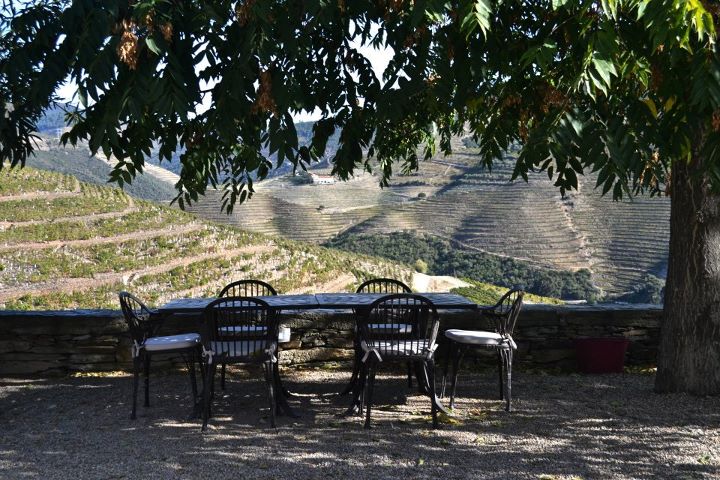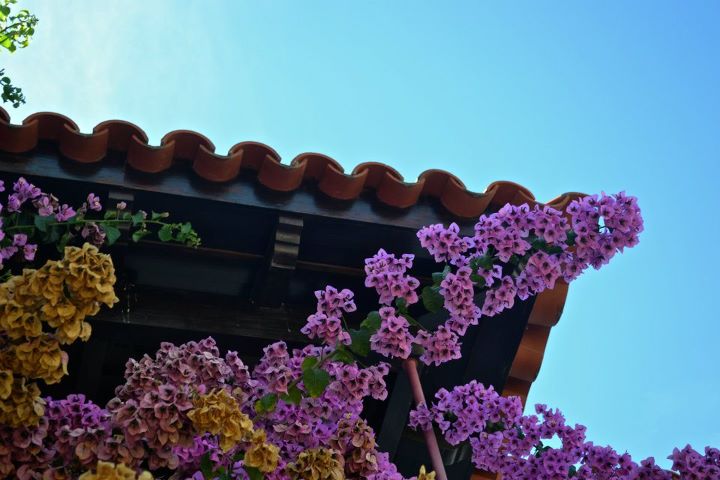For students and even professionals interested in pursuing wine law, an avid question that often results is how to pursue wine law as a profession or professionally. Originally, when I first started my journey as a wine law researcher, I thought there was only one answer to this question: to practice wine law in a law firm, irrespective of the firm’s size. I also originally believed—quite incorrectly, actually—California to be the only state within the United States in which one could practice wine law. However, as I learned more about the field from both reading literature and speaking with a variety of practitioners, I realized there is a lot more to a professional career in wine law—just as there certainly are a lot of options aside from traditional practice one can pursue with a Juris Doctor. As a result, I thought an entry surveying the options with which I am familiar might be useful to those curious about professional pathways for wine and the law.

The most important distinction I must make before discussing the professional opportunities I know of with respect to wine and law is that wine law and alcohol beverage regulation are different. Wine law pertains exclusively to the legal regulation of the wine industry whereas alcohol beverage regulation usually entails wine, spirits, and beer. While the practice of each is not mutually exclusive, there are many opportunities that focus on one rather than the other. This blog focuses on wine law and, as I assume the majority of its readers are interested in the area of wine and the law, I will discuss the opportunities of which I am aware pertaining to wine and the law (but, because alcohol beverage regulation and wine law are not mutually exclusive, some of the forthcoming ideas may address alcohol beverage opportunities as well).
1. Traditional Firm Practice: There are many firms in the United States that have an alcohol beverage regulation division or a division exclusively focused on wine law. The types of firms vary: there are some large firms with offices located in areas with a prominent wine industry; there are medium-sized or regional firms that have either an alcohol beverage regulation division or a wine law division; there are smaller firms that have one office and focus exclusively on alcohol beverage regulation; and there are sole practitioners who may practice wine law as one of their fields. These firms are located throughout the United States, although a higher concentration tends to be found in California (e.g., San Francisco or Sonoma), Washington (e.g., Portland or Seattle), New York, and Washington, D.C.
2. Consulting: I am somewhat unfamiliar with the consulting area of wine law, but it is certainly an option to consider. There are several businesses that perform consulting matters for compliance, especially with respect to shipping alcohol interstate. Some groups in the wine industry may also provide consulting services for licenses, permits, and labeling. Organizations that fall under this category, to my knowledge, include Compliance Connection and Compliance Service of America.
3. Trade Groups or Non-Profit Organizations: The trade groups and non-profit organizations of the wine industry exist, generally speaking, with the intent to increase communication and help develop the wine industry. The mission of each group is usually different, but generally focuses on promoting wine education among American consumers (as well as international consumers). In addition to educational missions, many trade associations also work closely with legislatures to assist with legal challenges of the wine industry. Some trade groups include WineAmerica (The National Association of American Wineries), The Center for Wine Origins, The Wine Institute, Family Wine Makers of California, and Atlantic Seaboard Wine Association (“ASWA”). Many of these organizations or groups are located in or around the Washington, D.C. area, although there are many found throughout major wine regions of the United States.
4. Research/Academia: Perhaps the most exciting field—at least, in my opinion—of the aforementioned categories is a research or academic pathway for wine and the law. Scholarly writing about wine law is certainly a field that needs much attention and will hopefully grow over time. Currently, there are a lot of law journals with articles published that discuss some legal aspect of the wine industry (i.e., intellectual property, overtones of constitutional law, trade, etc.), but generally speaking, most of these articles are not written by wine law scholars. There are few books that directly deal with legal issues of the wine industry, but there are several books that briefly discuss wine with respect to a broader legal issue (i.e., Bernard O’Connor’s The Law of Geographical Indications). Whereas there are not many schools or institutions that offer classes in wine and the law, the pathway is still a great one and is one I personally feel will grow stronger in years to come. Currently, UC Berkeley School of Law has a Program on Wine Law and Public Policy directed by academic and attorney Richard Mendelson. I believe UC Davis is also in the process of establishing a wine law program, or at least considering one, but I am not certain if that is completely accurate (the school does host a wine law conference each year. See UC Davis Wine Law Conference; see also Review of the UC Davis Wine Law Conference, June 2-4). There is also the highly recommended Wine & Law Program at the Université de Reims Champagne-Ardenne created and directed by Theodore Georgopoulos, which offers both masters degrees and university diplomas in wine law. This summer, the program will focus on comparative aspects of EU and U.S. wine law. There are also a few other attorneys who teach classes or host lectures and seminars. Additionally, there are wine law conferences and seminars hosted by Law Seminars, gathering many academics and professionals. The research and academic pathways are the direction in which I hope to proceed at some point in my career.
There is a strong possibility that, because I am simply a student and continually learning about the possibilities of pursuing wine law professionally, I overlooked several opportunities. If such exist, please feel free to either leave a comment or send me an e-mail at lazahn@winelawonreserve.com. I am always interested in hearing about alternative pathways, as well as sharing such with others interested in wine and the law.

One final note to make is that wine law, although certainly with strong overtones on the West Coast, is not only concentrated on the East Coast, but also has an international focus, as well as a focus in other regions of the United States. Whereas California is the biggest producer of wine in the States, it is not the only state with lawyers knowledgeable about wine and the law. Each state has its own alcohol beverage control department or agency, which regulate the alcohol beverage industry within the state. This includes issuing licenses and permits in accordance to the state’s alcohol laws, as well as many other tasks. (See, e.g., California Department of Alcoholic Beverage Control, New York State Liquor Authority, and Texas Alcoholic Beverage Commission.) On the state side, there are many different types of alcohol beverage businesses that need to obtain appropriate permits or licenses; sometimes this can be pursued in house, but other times help from outside counsel is acquired. Counsel may be members of a larger firm or even a firm without a designated alcohol beverage regulation division.
My point is simply that alcohol beverage law has overtones in all fifty states of the United States. Whereas the wine section of alcohol beverage law may be more prominent in states with a greater number of vineyards or a stronger wine industry—like California or Washington—legal overtones of the wine industry are not nonexistent in states with fewer vineyards or less involvement in the wine industry. While the strategic approach in those states may be different from the approach in states where wine is a larger part of the agriculture industry, it is still possible to practice as an attorney and oversee issues pertaining to wine and the law in any state.
I found this to be a very useful and timely post, particularly in today’s job market. As a wine law professional, I took a very different path than those you list but one that has benefited me tremendously: I worked for a winery.
After law school I worked in a practice completely unrelated to wine law and hated it. After a few years, I left and took a job as General Manager of a small Califorinia winery. From there I learned the wine business inside and out; negotiating and writing vineyard leases, grape contracts, custom crush and Alternating Proprietorships, distributor agreements, as well as all aspects of production and shipping compliance. I did that for a dozen years, finally moving to my current position as in-house counsel for a wine fulfillment company five years ago.
I deal with wine-related legal issues every day, as well as general corporate legal work. My experience in a working winery gives me a tremendous benefit in understanding the “real world” inner-workings of an operating winery and the challenges they face. Not sure this is the path to emulate, but working for a winery allowed me to get to my position today.
Leslie – thank you – great information, particularly regarding the consulting end of wine and the law.
Hi Matthew–thank you for your contribution! Yes, your pathway is one I’ve certainly heard about throughout my wine law journey, but I forgot to consider it when writing. During my studies the last few years, I met a number of individuals who worked for a winery either right after law school or at some point during law school to learn the ins and outs of the industry. Many of the most respected attorneys in the field of wine law have personal experience in the industry. Working for a winery is certainly a great pathway for anyone serious about wine law, as it is a wonderful way to acquire first-hand experience.
I also strongly believe that any legal experience post-law school, regardless of whether it is wine law-related, is a positive choice for legal experience even if someone is considering pursuing wine law at a point in their career. You are correct that, during a job market as we have now, it is best to be creative and pursue options that provide strong experience and opportunities.
Hi, Leslie,
I am in my first year of law school at Charlotte School of Law in Charlotte, NC. “North Carolina ranks ninth in wine production in the United States, according to the States Department of Agriculture Non-citrus Fruits and Nuts 2010 report.” (professor syllabus for International Comparative Law: The Business of Wine) Thank you for the information on wine and law. I am interested in this field and found this site to be very helpful on starting to research the field. I am taking a comparative law class this summer on the business of wine with a travel aboard component in Champagne, France through my law school. I admire your passion for alternative careers in law and creating a blog. Thank you for the information and I look forward to following your post and reading past posts. My professor recommends the following two books for the class I am taking this summer: From Demons to Darling: A Legal History of Wine in America and Wine in America: Law and Policy. I would like to converse with you further regarding the class and any information I further receive.